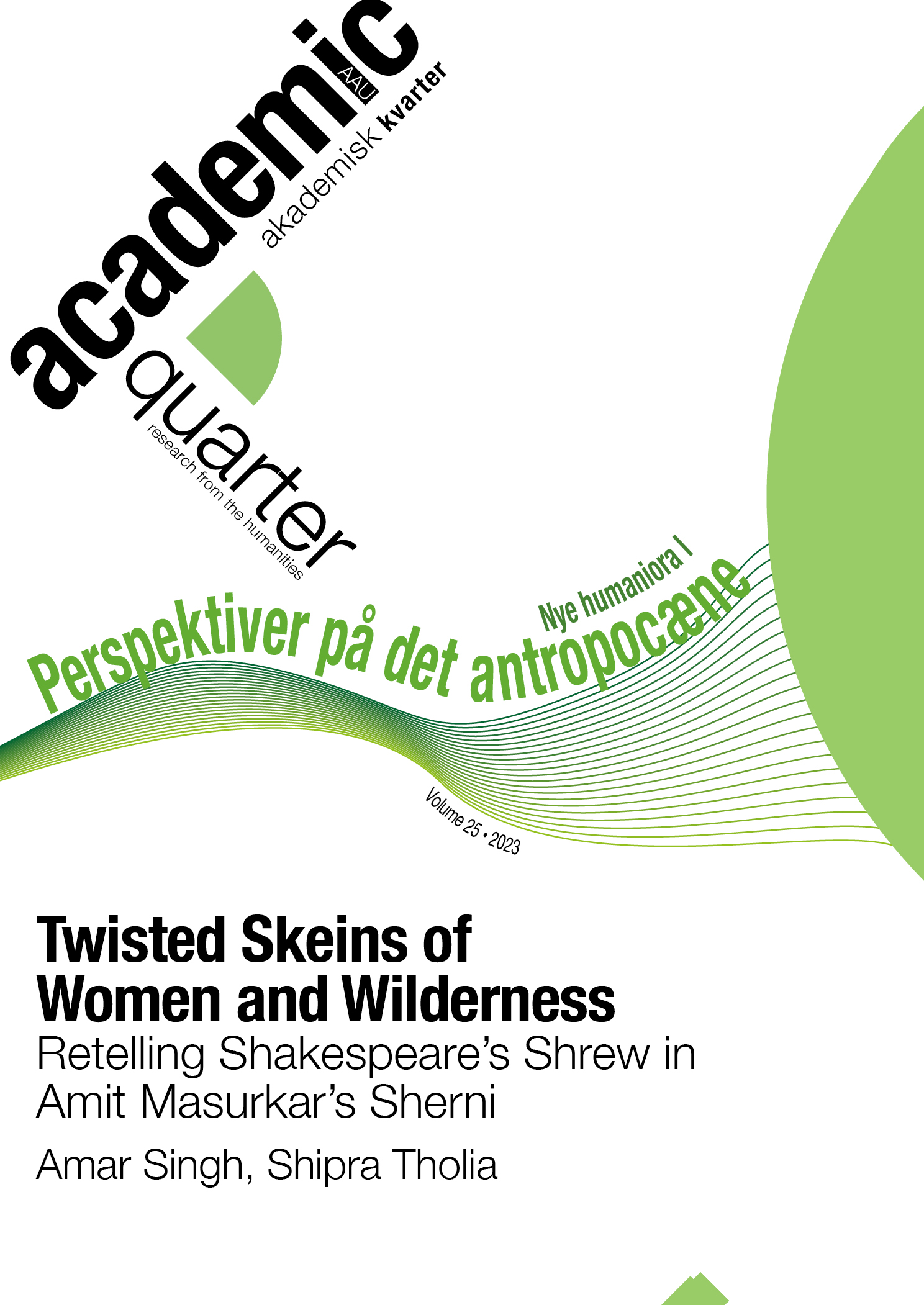Abstract | Abstract
Anthropogenic development has reduced the concept of stability to an imaginary state. Thomas Nail prefers the term “Kinocene” to Anthropocene or Capitalocene to describe modern times since it suggests a reconfiguration of human-nonhuman relations. This is where the interpretation of classic tales through contemporary lenses becomes relevant concerning re-imagining them in the context of marginalized voices. An example of this is the Bollywood film Sherni, which finds its tropes in the Shrew tales, famously used by Shakespeare.
This article is divided into three sections, followed by a conclusion. The first section introduces Thomas Nail’s concept of border, allowing the analysis to focus on extensive and intensive movements. The former pertains to the observation of external manifestations of hegemonical exercise perpetuated within India as a legacy of colonialism. Following the discussion of the colonial legacy, examining the intensive movement illustrates how Shakespeare’s Shrew tropes emerge as the film expresses its resistance to patriarchy and creates empathy for the nonhuman actor.
